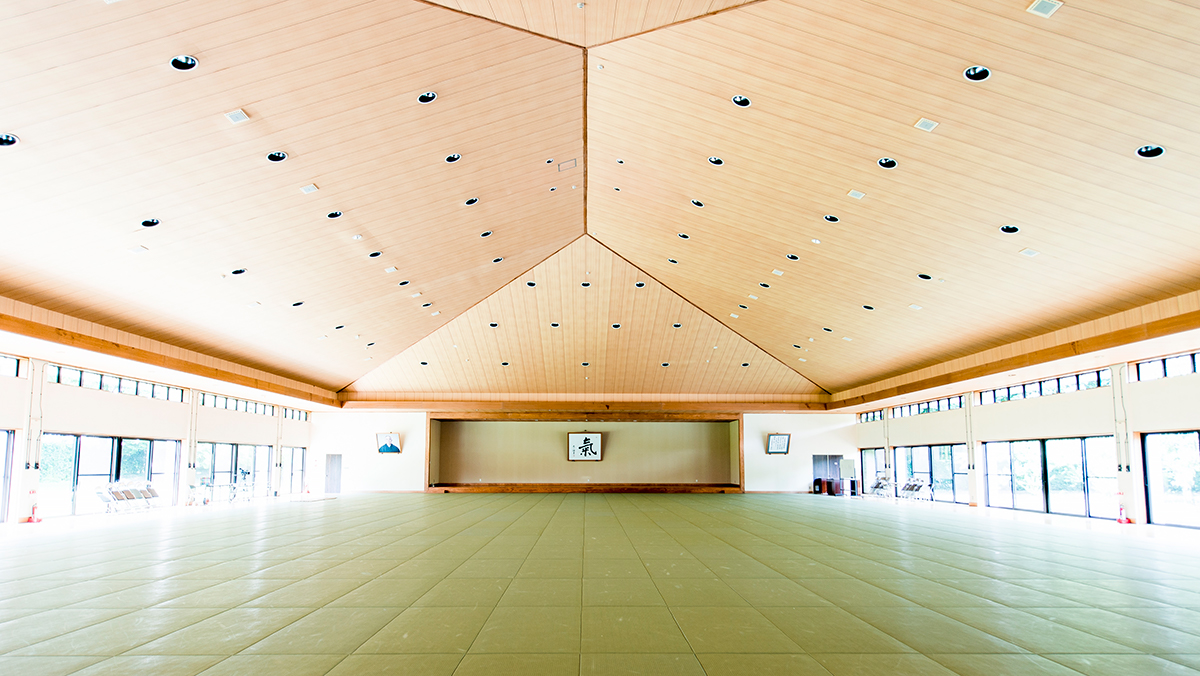I recently had the pleasure of having a conversation with Midori Kawashima Sensei, a 91-year-old nurse.
She told us that, in the past, nursing was a job for serving others, and nurses were not allowed to have a family for the rest of one’s life.
Kawashima Sensei believed that the nursing profession was not sustainable in such a harsh environment, and has worked
tirelessly to establish the social status for the nurses.
Today, she is actively involved in training nurses through her writings and giving lectures.
Last year, Kawashima Sensei began practicing Shinshin Toitsu Aikido at the age of 91. And she has said that the most important thing for a nurse to understand is how to care for a patient with gentle physical contact.
She says, through gentle physical contact, we may understand the patient’s condition. The patient feels better through that physical connection, and that interaction brings out the life force of the patient.
In fact, Kawashima Sensei’s hands are very soft and warm, which is extremely important in Shinshin Toitsu Aikido.
When we face our partner in a rigid, stiff, or tense state, we will not be able to understand the movement of Ki and throw our partner. If we do not have softness, we will collide with the partner at the moment of contact, and will not be able to move freely.
Furthermore, if we remain tense, we are more likely to get injured or have a problem.
There is nothing good about being in this kind of state. But why do we become tense in spite of this? And what is the cause of this?
This is one of the biggest themes we practice in Shinshin Toitsu Aikido.
From a physical perspective, two key points are physical flexibility and muscle quality.
Flexibility of the muscle is achieved by moving (stretching) in a relaxed state. It is not enough to just do it, but doing so with a unified body will increase its effectiveness.
Moving without the flexibility causes strain in various parts of the body, which can easily lead to injury or discomfort.
The “quality of the muscles” is obtained by having a balanced and natural posture on a regular basis. The muscles will be normally soft and become hard when exerting force.
In an unbalanced posture, we are constantly using muscles unnecessarily to support our posture. The muscles then accept this condition as a norm and become stiff. Soft muscles allow us to exert maximum power.
Tohei Sensei used to let his students feel his forearm. When his forearm was relaxed, it was soft like a water balloon, but when he engaged his muscle, it was as hard as a rock. Everyone was amazed how his arm muscles changed so drastically and freely. Tohei Sensei [always] held [his opponents] or let them grab him in this condition – this is why he never bumped into them.
From the mind aspect, the “flexibility” and “receptivity” are key.
The flexibility, in this case, refers to the flexibility of our mind/heart. For example, when we think, “this is the way it has to be”, our mind/heart becomes rigid.
Because mind moves body, a rigidity of the mind/heart leads to the stiffness of the body. If the mind/heart
is not flexible, we will always clash with our partner.
The word “receptivity” seems to have various meanings depending on how it is used, but in this case, it refers to understanding (accepting) our partner.
If we are not willing to understand our partner, or when we want them to do what we want, our mind/heart becomes hardened, and our body becomes rigid.
Softness of mind/heart cannot be obtained simply by relaxing our physical body. It can only be achieved by correctly understanding our own habits of thinking and perceiving, and then dissolving our attachment to those thoughts and perceptions through Ki no Ishihо̄ (Ki Meditation).
Koichi Tohei Sensei had a flexible attitude toward everything. He valued and respected each person’s unique qualities. Even when things didn’t go the way he thought they should, he didn’t get attached to his original thinking, and instantly sought other ways to accomplish them.
I am also working on the softness of mind/heart myself. True softness is achieved when both the mind/heart and body are in alignment.
Once we gain “softness”, the way we relate to others will change dramatically. It is interesting because one’s own techniques will change as a result.
Let’s work on it together as an important theme of this year’s training.
Translated by Mayumi Case
Edited by David Shaner and Matthew Attarian
Eastern Ki Federation
https://easternkifederation.org/
Original article in Japanese: やわらかさ (Yawarakasa)
February 1, 2023
http://www.shinichitohei.com/japanese/2023/02/post-e7746e.html

